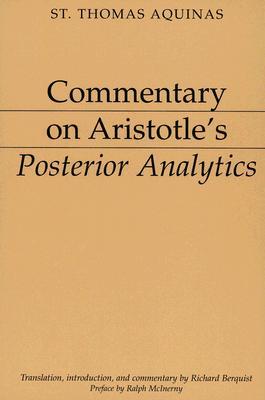- Bible
- Read the Bible
- Bible Versions
- Verse of the Day
- Reading Plans
- Verses by Topic
- Books of the Bible
- Bible Images
- Study
- Commentaries
- Concordances
- Dictionaries
- Encyclopedias
- Sermons
- Bible Atlas & Maps
- BP Wiki
- Devotionals
- Today's Devotionals
- Light of the World
- All Devotionals
- Inspirational Quotes
- More
- Picture Quotes
- Videos
- Inspirational
- Bible Study
- What The Bible Says
- Bible Q&As
- Daily Bread
- Bible by Genre
- Bible Stories
- Random Bible Verse
- Community
- Store
Commentary on Aristotle's Posterior Analytics
To make the work as useful as possible for contemporary readers, the translator has provided an introduction and a supplementary commentary of his own. The introduction discusses three topics of fundamental importance for the study of the Posterior Analytics today: the relationship of Aristotle's logic to symbolic logic, the scope and subject matter of logic, and the status of the syllogism as an argument form. The supplementary commentary invites the reader to further reflection on the Posterior Analytics in the light of Aquinas's interpretation. Aquinas's commentary is divided into readings or lessons (lectiones), forty-four on Book I of the Posterior Analytics and twenty on Book II. The translator's supplementary commentary follows the same arrangement. The work includes footnotes, a brief bibliography of works cited, an index, and a preface by Ralph McInerny.
To make the work as useful as possible for contemporary readers, the translator has provided an introduction and a supplementary commentary of his own. The introduction discusses three topics of fundamental importance for the study of the Posterior Analytics today: the relationship of Aristotle's logic to symbolic logic, the scope and subject matter of logic, and the status of the syllogism as an argument form. The supplementary commentary invites the reader to further reflection on the Posterior Analytics in the light of Aquinas's interpretation. Aquinas's commentary is divided into readings or lessons (lectiones), forty-four on Book I of the Posterior Analytics and twenty on Book II. The translator's supplementary commentary follows the same arrangement. The work includes footnotes, a brief bibliography of works cited, an index, and a preface by Ralph McInerny.BUY NOW
Published January 10th 2008 by St. Augustines Dumb Ox Books (first published January 10th 2007)

Thomas Aquinas was an immensely influential philosopher and theologian in the tradition of scholasticism, known as Doctor Angelicus and Doctor Communis.
He was the foremost classical proponent of natural theology, and the father of the Thomistic school of philosophy and theology. His influence on Western thought is considerable, and much of modern philosophy was conceived as a reaction against, or as an agreement with, his ideas, particularly in the areas of ethics, natural law and political theory.
The philosophy of Aquinas has exerted enormous influence on subsequent Christian theology, especially that of the Roman Catholic Church, extending to Western philosophy in general, where he stands as a vehicle and modifier of Aristotelianism, which he fused with the thought of Augustine.
... Show more